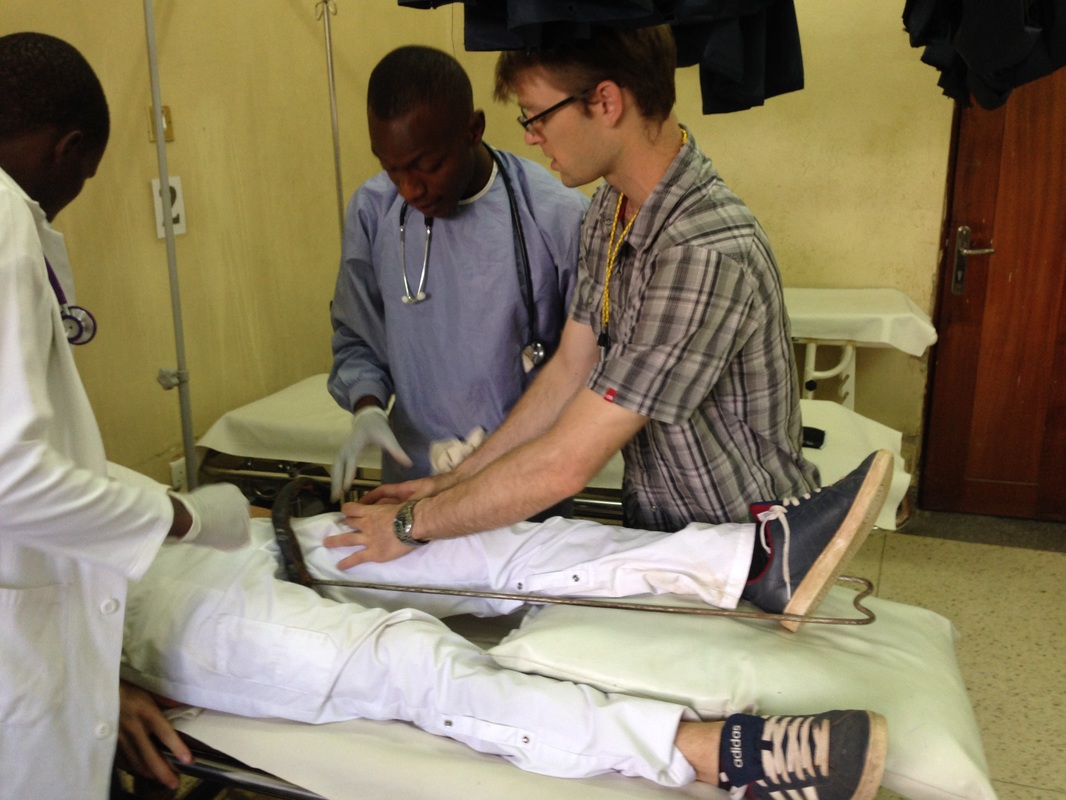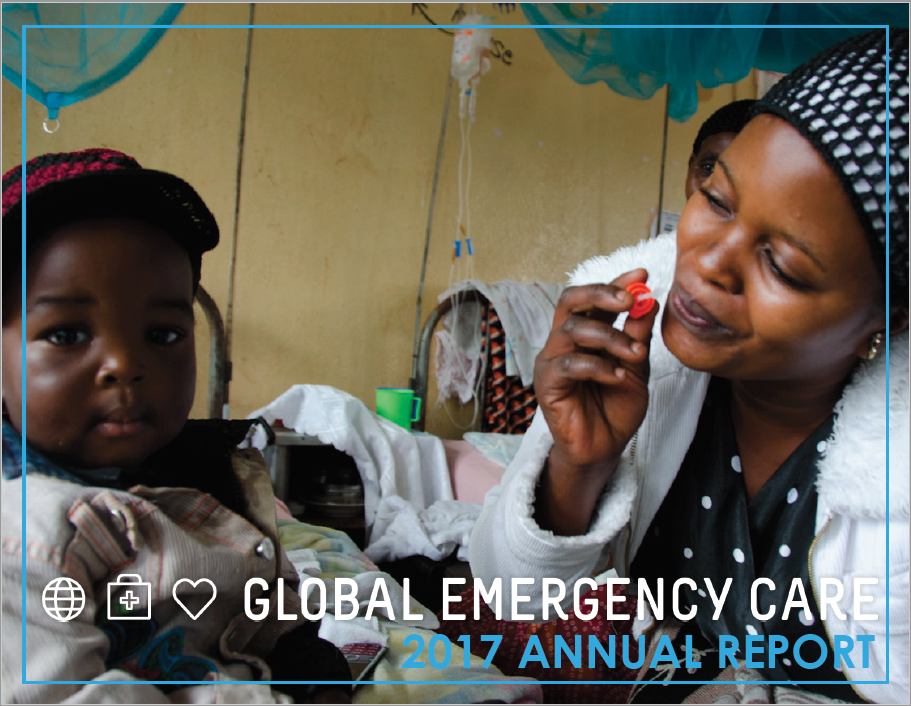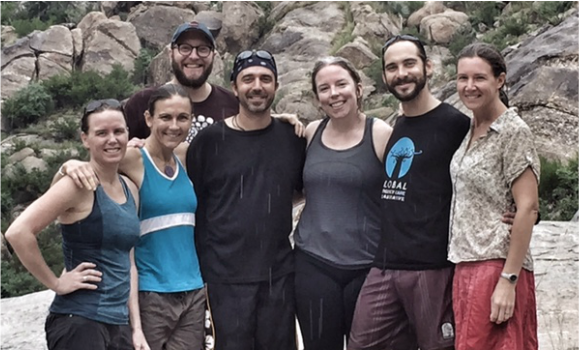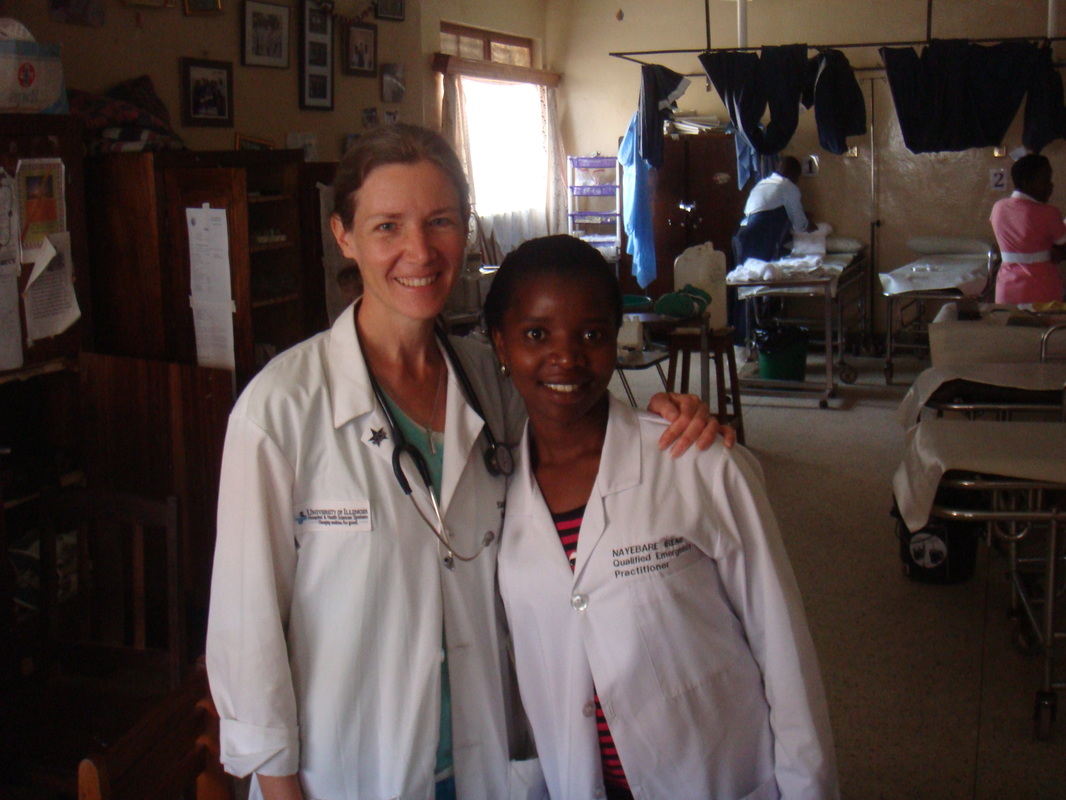REPORT FROM THE FIELD
“What we know of health care in the U.S. is nonexistent here. The ECP’s must develop an amazingly broad skill set at repairing complex wounds that most Emergency Medicine physicians in the U.S. would feel uncomfortable closing on their own.”
By: Hans Hurt, MD, GECC Volunteer Physician
Trauma and wound care injuries have been a huge portion of the patients that I have seen arrive to the Emergency Department at Nyakibale on a daily basis. Nyakibale is a small, district hospital in rural southwestern Uganda not too far from the borders of Rwanda and the Democratic Republic of the Congo. What we know of health care in the US is nonexistent here. Families are extremely lucky if they possess the means to see a doctor before things take a turn for the worse.
It has been rare for a day to pass without patients arriving with complex scalp, lip, eye lid, ear, and tendon lacerations from “boda-boda” (motorcycle) or “panga” (machete) accidents. In the U.S., many of these complex wounds would be treated by a consulting an Ear, Nose, and Throat doctor, Orthopedist, or Ophthalmologist – dedicated specialists for these emergencies. But in Nyakibale in rural Uganda, there are no specialists, and in fact there are no emergency physicians whatsoever in the entire country. The closest specialists are three hours away in Mbarara and the majority of patients cannot afford to travel there or pay the additional specialist fees. The ECP’s must develop an amazingly broad skill set at repairing these complex wounds that most Emergency Medicine physicians in the United States would feel uncomfortable closing on their own.
In order to lead the advanced suturing workshop, I had to first broaden my own skill set and fill in knowledge gaps for the procedures I often ask the specialists to perform. I had to look outside of the standard Emergency Medicine literature as a common recommendation was to consult a specialist without giving any details of the procedure.
The Junior ECP’s were excited to learn the new techniques and get the focused time to practice. Later that afternoon they were already implementing the new corner stitch to fix a scalp laceration and were carefully reattaching a partially amputated ear after a machete attack.




This Post Has 0 Comments